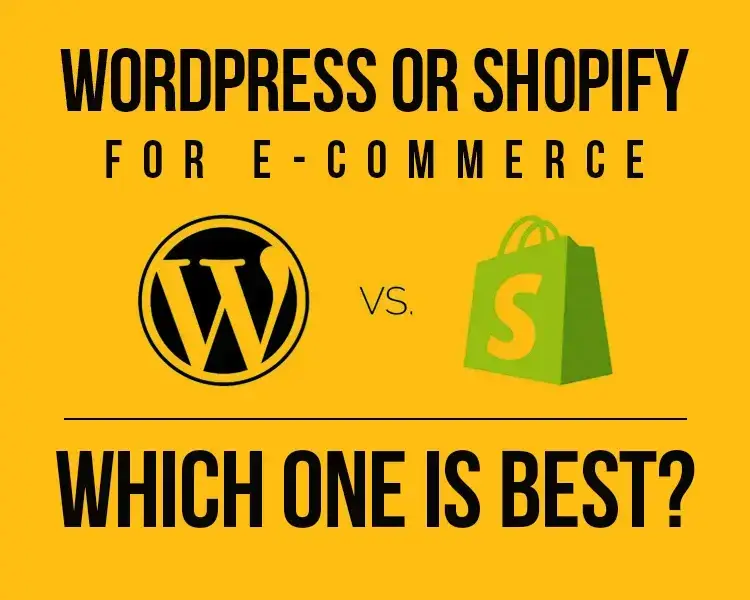Choosing the right platform for your e-commerce store is a critical decision that can significantly impact your business’s success. WordPress (with WooCommerce) and Shopify are two of the most popular platforms for building online stores. Each has its strengths and weaknesses, making the choice dependent on your specific needs and preferences. Let’s break it down.
WordPress, paired with WooCommerce, is an open-source solution that allows you to create highly customizable e-commerce websites.
Advantages of WordPress (WooCommerce)
- Customizability
- With access to thousands of themes and plugins, WordPress offers unparalleled flexibility in designing and managing your store.
- Cost-Effective
- WooCommerce is free to use, and you can choose hosting and additional plugins based on your budget.
- Scalability
- WordPress can handle large product catalogs and complex features, making it suitable for businesses that aim to grow.
- Full Control
- Being self-hosted, WordPress gives you complete control over your website’s design, functionality, and data.
- SEO-Friendly
- WordPress is highly customizable for SEO, allowing you to optimize every aspect of your store to rank better in search engines.
Disadvantages of WordPress (WooCommerce)
- Steeper Learning Curve
- Managing a WordPress site, especially for e-commerce, requires some technical know-how.
- Regular Maintenance
- You’ll need to handle updates for WordPress, WooCommerce, themes, and plugins yourself, which can be time-consuming.
- Security Concerns
- Without proper security measures, WordPress websites can be vulnerable to hacking attempts.
Shopify is a fully hosted e-commerce platform that simplifies the process of creating and managing online stores.
Advantages of Shopify
- Ease of Use
- Shopify is beginner-friendly, with a user-friendly interface and no need for technical skills.
- All-in-One Solution
- Hosting, security, and maintenance are handled by Shopify, allowing you to focus on your business.
- 24/7 Support
- Shopify provides reliable customer support to assist with any issues.
- Integrated Payment Options
- Shopify offers built-in payment gateways, including Shopify Payments, simplifying transactions.
- Fast and Reliable
- As a hosted platform, Shopify ensures fast load times and excellent performance.
Disadvantages of Shopify
- Limited Customization
- While Shopify is customizable, it lacks the extensive flexibility of WordPress for unique designs and functionality.
- Monthly Fees
- Shopify operates on a subscription model, which can become costly over time, especially if you add premium apps.
- Transaction Fees
- Unless you use Shopify Payments, the platform charges transaction fees for other payment gateways.
- Restricted Ownership
- Since Shopify is a hosted solution, you don’t have full control over your store’s data.
Which One is Best for You?
- Choose WordPress (WooCommerce) if:
- You want complete control over your website.
- You have some technical expertise or are willing to hire a developer.
- You’re looking for flexibility in design and functionality.
- You’re on a budget and prefer scalable options.
- Choose Shopify if:
- You need an easy-to-use, ready-made e-commerce solution.
- You want minimal involvement in hosting, security, and maintenance.
- You’re okay with paying for convenience.
- You want reliable customer support and fast setup.
Let Cyberavanza Help You Decide!
Still unsure which platform suits your business? At Cyberavanza, we specialize in building custom e-commerce stores on both WordPress and Shopify. Our team can guide you to the perfect solution for your unique business needs.
📞 Contact Us Today
💻 Cyberavanza – Your Trusted E-Commerce Development Partner!


